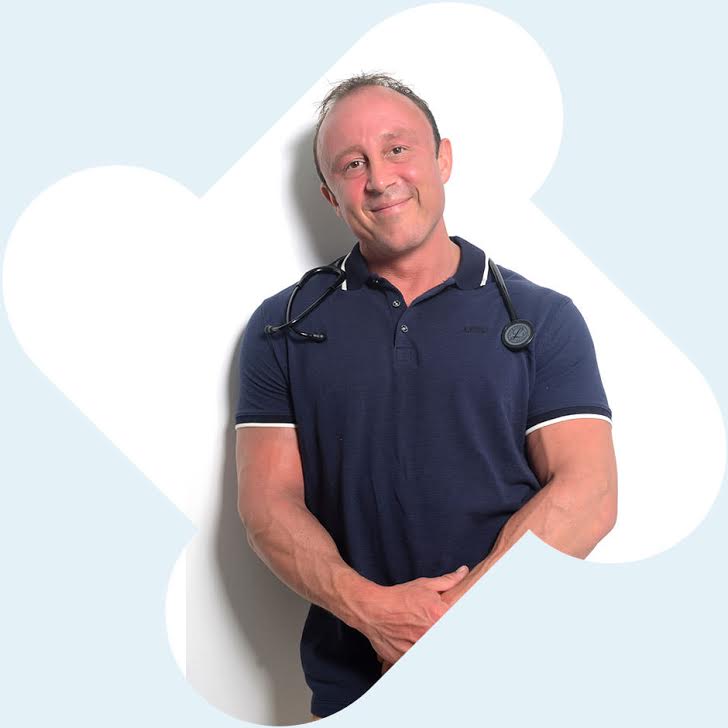Well, yes and no. Whilst there is no definitive cut off period when the testicles stop producing testosterone, there are very real symptoms and signs associated with having low testosterone that can have a detrimental effect on a man’s health.
There is instead a gradual decline in testosterone levels with increasing age, typically after the age of 30, that may or may not drop to unhealthy levels. Testosterone levels can be measured with a simple blood test and there are clear guidelines set out by the British Society for Sexual Medicine as to when to treat it.
So, whilst it may not be as dramatic as the female menopause, the male menopause is just as real; men often accept a decline in their physical well-being and cognitive function as a natural consequence of ageing. You shouldn’t, you should continue to have an optimal testosterone level so you can stay fit and active for longer. How many of you are taking Levothyroxine for an underactive thyroid, diabetic medications for type 2 diabetes, these are also hormones you don’t think twice about restoring to optimal levels to improve your health.
The Male Menopause or Andropause are terms frequently used in place of the medical diagnosis Late Onset Male Hypogonadism which signifies when the testicles fail to produce adequate levels of testosterone to maintain health.
What is testosterone and why is it so important?
 Testosterone is the male sex-hormone, it is produced in the testes and to a lesser degree by your adrenal glands which sit above your kidneys. It is responsible for sexual maturity and reproduction, it improves libido and overall metal well-being.
Testosterone is the male sex-hormone, it is produced in the testes and to a lesser degree by your adrenal glands which sit above your kidneys. It is responsible for sexual maturity and reproduction, it improves libido and overall metal well-being.
Remember those teenage years when your sex drive was through the roof and your brain was like a sponge, able to absorb new information with ease? That was in part due to the surge in your testosterone levels during puberty.
Testosterone also increases overall musculature and bone strength so you are able to do all those manly tasks women can’t, like open jam jars! Men are physically stronger and faster than females because of testosterone. Testosterone also decreases visceral fat levels, the type of fat that surrounds your organs that is an independent risk factor for cardiovascular disease.
On a more cellular level, optimal testosterone levels are associated with improved Insulin sensitivity lessening your risk of diabetes. Testosterone improves your lipid profile so your cardiovascular risk is reduced, it also reduces inflammatory markers and liver enzymes so your body reacts appropriately to inflammation and toxins.
Perhaps of most significance it is associated with reduced risk of mortality and improved survival. Testosterone allows men to have both quality and quantity of life. Testosterone allows men to live a healthy and active life for as long as possible, so why not ensure you have a healthy level?
What are the symptoms of low testosterone?
Are you tired all the time? Lacking energy? Trouble concentrating? Lacking drive and enthusiasm? Low sex drive? Are your erections less strong? Are you gaining weight but losing muscle? Are you physically weaker? Are you diabetic? Do you wake up in the night dripping in sweat? Is your beard and body hair less full? Have you got man boobs? Losing height? I bet most of us can relate to at least one, if not a few of these symptoms. Well then it’s time to approach your doctor and get your testosterone level checked. Don’t just accept it as a natural consequence of aging. I use the phrase ‘use it or lose it’ a lot when it comes to physical activity. Testosterone is such an important element in keeping a man happy, healthy and active.
What can you do to maintain a healthy testosterone level?
- Eat a healthy balanced diet; rich in protein, natural fats and foods rich in vitamin A, D and zinc.
- Avoid processed foods, refined sugars and moderate alcohol intake
- Stop smoking
- Engage in regular resistance and cardiovascular exercise
- Minimise stress and endeavour to maintain a healthy sleep pattern to reduce cortisol (your stress hormone)
However, when your levels are clinically low you will most likely need Testosterone Replacement Therapy to restore your levels to help optimise form and function. The Men’s Health Clinic is committed to addressing low testosterone and increasing awareness of the issue through education and support.

Dr Robert Stevens
MBChB MRCGP Dip.FIPT
www.preventativehealthdoctors.co.uk
Preventative Health Doctors Ltd.
“The doctor of the future will give no medication, but will interest his patients in the care of the human frame, diet and in the cause and prevention of disease. ~ ” – Thomas A. Edison
Preventative Health Doctors embraces this philosophy and uses science to ensure you lead a healthy and productive life





